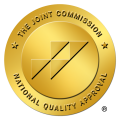- Our Services
- About Us
- Resources
-
-
- Domestic Violence – Effects – Treatment
- Dual Diagnosis
- Emotional Abuse During Addiction Treatment
- Facility & Staff
- How Nurse Practitioners Help Addiction Treatment
- Implement Pain Management Practices at Your Facility
- Trauma-Informed Care at Your Facility
- Accreditation for Addiction Facility
- Addiction Treatment Staff and Stress Impacts
- Substance Use Medical Billing Challenges
- Licensing Agencies for Treatment Facilities
- Treating Depression at your Addiction Treatment Facility
- Patient Care
-
- Contact Us





